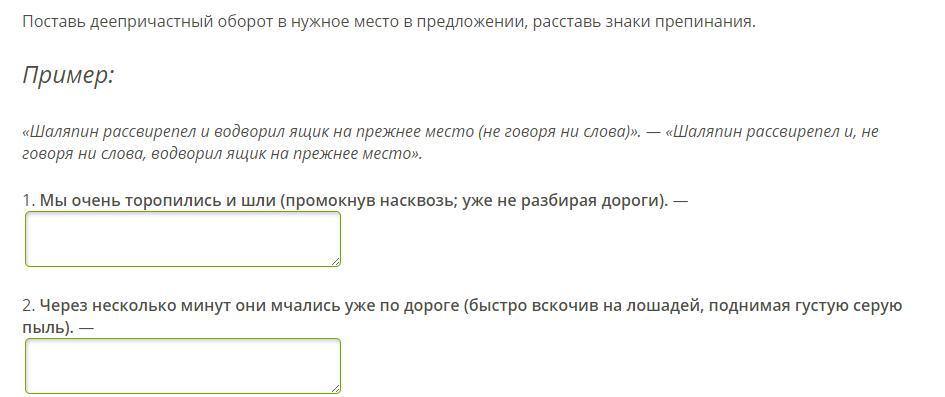Предмет: Русский язык,
автор: dimasemdima
Ввод деепричастного оборота в предложение
Приложения:

Ответы
Автор ответа:
0
Ответ:
Мы очень торопились и шли, промокнув насквозь(_. _. _. _.) мы очень торопились и шли, уже не разбирая дороги(_. _. _. _.)
Через несколько минут они мчались уже по дороге, быстро вскочив на лошадей(_. _. _. _. _.) Через несколько минут они мчались уже по дороге, поднимая густую серую пыль( _. _. _. _.)
Похожие вопросы
Предмет: Русский язык,
автор: MrsStylinson
Предмет: Русский язык,
автор: kristina5548
Предмет: Русский язык,
автор: kottabozor
Предмет: Химия,
автор: EHOT2281337
Предмет: Русский язык,
автор: robi0123